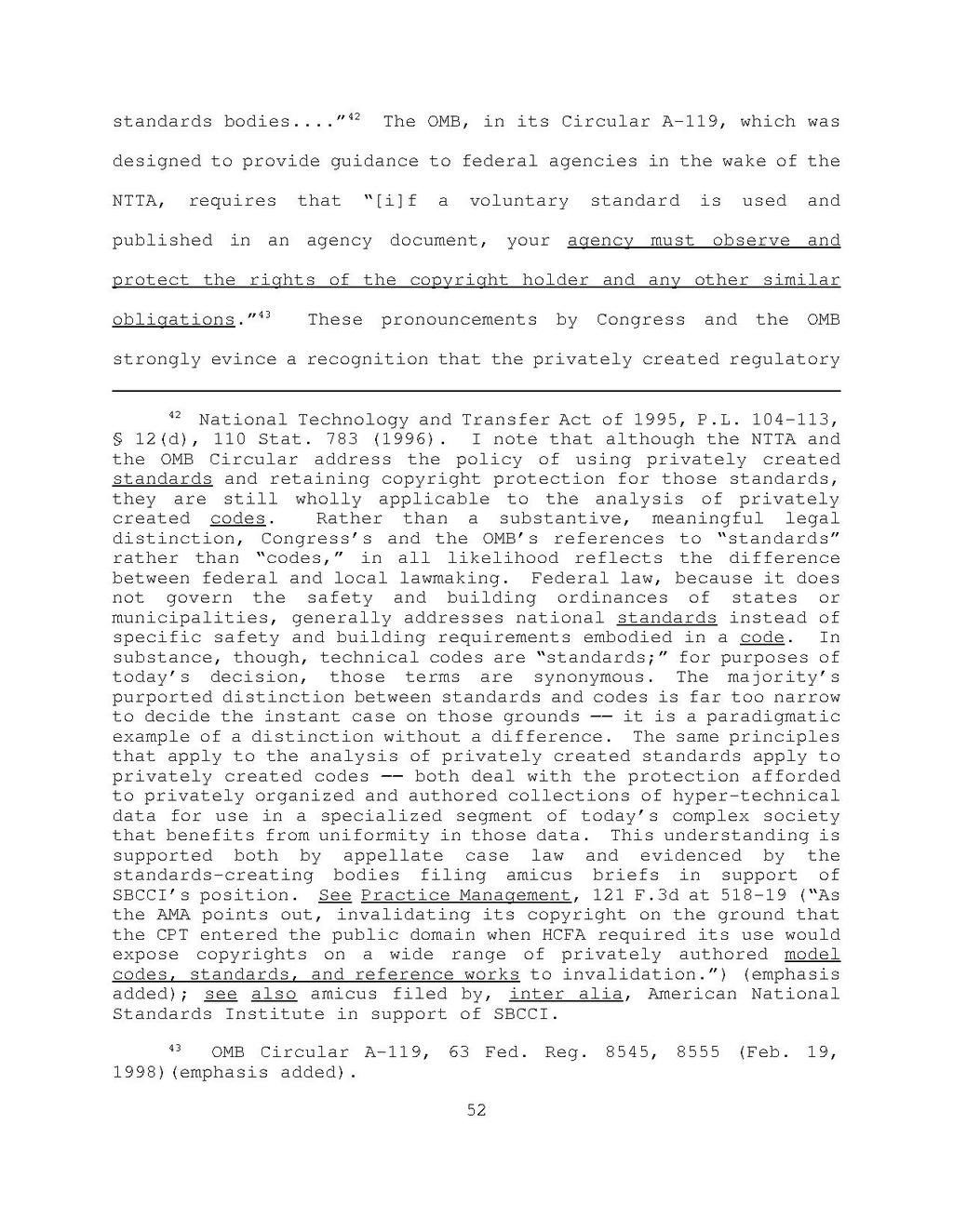standards bodies...."[1]The OMB, in its Circular A-119, which was designed to provide guidance to federal agencies in the wake of the NTTA, requires that "[i]f a voluntary standard is used and published in an agency document, your agency must observe and protect the rights of the copyright holder and any other similar obligations."[2] These pronouncements by Congress and the OMB strongly evince a recognition that the privately created regulatory
- ↑ National Technology and Transfer Act of 1995, P.L. 104-113, § 12(d), 110 Stat. 783 (1996). I note that although the NTTA and the OMB Circular address the policy of using privately created standards and retaining copyright protection for those standards, they are still wholly applicable to the analysis of privately created codes. Rather than a substantive, meaningful legal distinction, Congress's and the OMB's references to "standards" rather than "codes," in all likelihood reflects the difference between federal and local lawmaking. Federal law, because it does not govern the safety and building ordinances of states or municipalities, generally addresses national standards instead of specific safety and building requirements embodied in a code. In substance, though, technical codes are "standards;" for purposes of today's decision, those terms are synonymous. The majority's purported distinction between standards and codes is far too narrow to decide the instant case on those grounds—it is a paradigmatic example of a distinction without a difference. The same principles that apply to the analysis of privately created standards apply to privately created codes—both deal with the protection afforded to privately organized and authored collections of hyper-technical data for use in a specialized segment of today's complex society that benefits from uniformity in those data. This understanding is supported both by appellate case law and evidenced by the standards-creating bodies filing amicus briefs in support of SBCCI's position. See Practice Management, 121 F.3d at 518-19 ("As the AMA points out, invalidating its copyright on the ground that the CPT entered the public domain when HCFA required its use would expose copyrights on a wide range of privately authored model codes, standards, and reference works to invalidation.") (emphasis added); see also amicus filed by, inter alia, American National Standards Institute in support of SBCCI.
- ↑ OMB Circular A-119, 63 Fed. Reg. 8545, 8555 (Feb. 19, 1998)(emphasis added).
52
